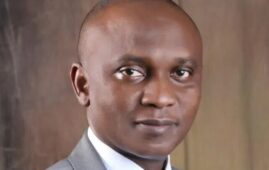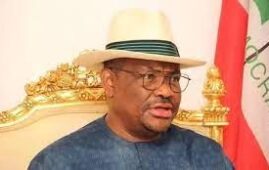By Zhong Sheng
A decision on establishing and improving the legal system and enforcement mechanisms for the Hong Kong Special Administrative Region (HKSAR) to safeguard national security was recently approved by deputies to the 13th National People’s Congress (NPC).
However, the U.S., attempting to obstruct the decision, even threatened to impose sanctions on Hong Kong. It is blatant intervention in Hong Kong affairs and the internal affairs of China, as well as insolent violation of the international law and the basic norms governing international relations, fully exposing the double standards and bullying practices of Washington. We sternly warn the U.S. that sanctions against the HKSAR are doomed to fail, and it will only meet a dead end playing Hong Kong cards.
Hong Kong belongs to China, as well as the 1.4 billion Chinese people, including 7.5 million compatriots in the SAR. The high degree of autonomy in the region has never been defined by the U.S. Washington’s accusation on the national security legislation for impeding the high degree of autonomy and freedom of the SAR is total defamation that distorts the principle of “one country, two systems.”
It’s recognized by everyone non-biased that the practice of “one country, two systems” has achieved universally acknowledged success since Hong Kong returned to China, and the compatriots in Hong Kong have enjoyed wider democracy and freedom than ever before.
The national security legislation is a right and responsibility of the central government of China, and the national security law only targets the minor practices and activities that seriously damage national security. The law doesn’t affect the high degree of autonomy of Hong Kong, the legitimate rights and interests, as well as the freedom of Hong Kong residents, or the legitimate rights and interests of foreign investors in the SAR. It will only complete the legal system of Hong Kong and bring more stability to the region’s social order, and help protect the principle of “one country, two systems” and maintain the long-term prosperity and stability of Hong Kong.
National security is fundamental for a sovereign country, and national security legislation is a sacred and inviolable sovereign right of a country. While the U.S. is doing everything around the world to protect its so-called national security, it is demonizing China for the latter’s legitimate and reasonable practices in national security legislation and even threatened to impose sanctions. Such double standards and bullying practices are just arbitrary, rude and shameless.
The U.S. said blatantly that it has taken Hong Kong as a bastion of liberty for decades, and hoped that free and prosperous Hong Kong would “provide a model” for China. Such “confession” exactly revealed the White House’s vicious intention to use the SAR as a bridgehead to split, subvert, infiltrate and undermine the Chinese mainland. It also proved that it is urgent for the NPC to make relevant laws and plug its national security loopholes.
It is self-evident why the U.S. has been making ceaseless and groundless accusation on China. Threats and intimidation will never shake China’s resolution and will to safeguard national security, or stop Hong Kong citizens from supporting the national security legislation. So far, over two million residents in Hong Kong have signed petition in support of the legislation.
Rita Fan Hsu Lai-tai, former president of the Legislative Council of Hong Kong, noted that the NPC’s decision to make national security law for Hong Kong has no impact on the region’s high degree of autonomy. On the contrary, if the violent and almost terrorist activities keep going on, there would be no future for Hong Kong, she said, adding that the special status of the region would be meaningless then.
Since Hong Kong returned to its motherland, it has established reciprocal cooperation with multiple trading partners, including the U.S., which has 1,344 companies and around 85,000 Americans live in Hong Kong.
In the past decade, the U.S. enjoyed a trade surplus of $297 billion with Hong Kong, the biggest among all of Washington’s trading partners. The U.S. will be the first to fall if it imposes sanctions on Hong Kong. If the country is not clear about this, the so-called sanctions would be another farce. The attempts of Washington to contain China’s development progress at the sacrifice of Hong Kong are doomed to end up in vain. The U.S. had better estimate the current situation and stop its wrongdoings as early as possible.
Justice will ultimately prevail over the evil. The Chinese government is determined in implementing the “one country, two systems” policy, safeguarding national sovereignty, security and development interests, and opposing external interference in Hong Kong affairs. The central government of China, as well as the government of the HKSAR are well prepared to take forceful countermeasures. Some countries, including the U.S. and the UK, tried to push the UN Security Council to discuss Hong Kong’s national security legislation, which was strongly opposed by China. It was also rejected by most of the members of the UN Security Council as they believe Hong Kong affairs are China’s domestic affairs and have nothing to do with the UN Security Council.
The unique position of Hong Kong in international economic and trade relations is granted by the Basic Law, rather than foreign countries, and the prosperity and stability of the region are created by Hong Kong compatriots under the strong support of the Chinese mainland, not given by foreign countries, either.
The development and progress of China are the source of Hong Kong’s confidence in conquering challenges and difficulties, as well as the huge opportunities for the region’s prosperity and development. U.S. sanctions are not able to frighten Hong Kong or undermine China. Any individual and any so-called sanction will not stop Hong Kong from integrating into national development or prevent China from realizing the great rejuvenation of the Chinese nation.
(Zhong Sheng is a pen name often used by People’s Daily to express its views on foreign policy.)




Leave a Comment